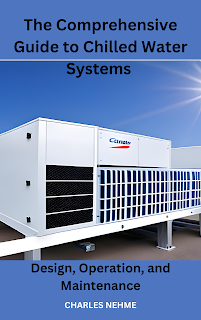Exploring Chilled Water System Designs: Which One is Right for You?

Chilled water systems play a crucial role in HVAC cooling applications , offering energy-efficient temperature control for commercial, industrial, and residential buildings. Choosing the right chilled water system design depends on factors such as load requirements, energy efficiency, redundancy, and cost considerations . In this blog, we explore various chilled water system configurations, their advantages, and their ideal applications. 1. Primary-Only Chilled Water System A simple and cost-effective design, the primary-only system consists of a single loop where the chillers and cooling coils share the same piping system. Pumps circulate chilled water directly from the chiller to the air-handling units (AHUs) or terminal units. Pros: Low initial cost Simple operation and maintenance Suitable for smaller applications Cons: Limited flexibility Not efficient for large systems 2. Primary-Secondary Chilled Water System This system features two loops : one for the chillers (primary...
.png)

